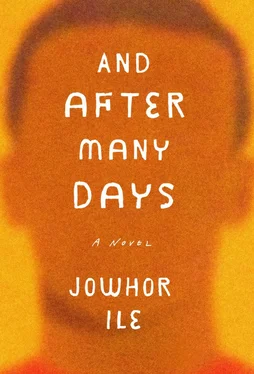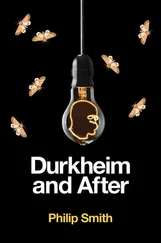Those present in the court said Bendic spoke for so long that his voice got dry and hoarse and the judge asked for a glass of water to be brought.
This was the part of the story Ajie liked best. He would imagine the courtroom. Where would Bendic be standing, being both counsel and plaintiff? In the witness box? The courtroom had a considerable number of Ogibah people. There were more than a handful who had never gone further than Elele before the start of this case months ago, but here they were in the serene expanse of Station Road in Port Harcourt, disgruntled but firm in their belief that justice would prevail. There were other people in the court: lawyers, all in black robes, adjusting their blond wigs to a cocky angle, their twig collars flapping out like gills. Representatives from Company sat in a single row in smart suits and spectacles — Ajie didn’t imagine them turning up in coveralls, jungle boots, and hard hats. Some had been flown in from their main offices in Europe.
There was a court clerk as well, and orderlies with severe faces, in navy blue polyester uniforms, their shoes old but well blackened and shined. Over the sea of heads, benches, and wooden partitions sat the judge, chief goon, master of ceremonies. There was something celestial about the array.
Bendic was standing in the witness box. Sheaves and sheaves of documentary evidence he had amassed had been laid carefully in front of him. Photographs of swamplands and ponds covered in grease, ruined cassava farms burned to frazzle. When Bendic answered the questions he was asked, Ogibah heads nodded, and their hearts sighed in affirmation of the details of the disaster. Bendic spoke till his throat got hoarse, and Chief Goon sent an orderly for a glass of water. At this point, as the story went, clapping erupted among the Ogibah people in the courtroom; it could not be helped. Their man had spoken at such great length that water had to be brought for him. Chief Goon banged his gavel many times to calm the court and warned the people very seriously not to interrupt his court session again, else he would have no qualms holding the lot of them in contempt.
Of course, on the day the verdict was delivered, when Chief Goon put down the gavel for the final time, it was to rule against Bendic and Ogibah.
Mboy ka Israel was detained in court that day because he stood up, just before the judge finished reading out the verdict; he pointed at the judge and yelled, “You are a liar, and a thief! Agbra awe eya! Blind devil.”
Ajie let the click-clack of Ifiemi’s urgent fingers on the typewriter keys into his afternoon reverie. There was the sudden yet expected sweep of the carriage at intervals. The carriage return bell, the brisk rolling in of fresh paper. He thought about Israel’s son, Mboy, who was held in the court jail for one night and didn’t make it with the others on the bus back to Ogibah that evening. Ajie thought of the judge; he tried but couldn’t muster hatred for him: At least he had the decency to allow a glass of water to be brought for a man who really needed it. But Ajie sensed his small feelings of gratitude to the judge were misguided. He would ask Paul what he thought. He counted on Paul’s perspective to steer him in the right direction and maybe ignite some indignation in him.
Marcus and Paul were sent off with the letters in the morning, and Paul sat in the passenger seat with the letters on his lap as they headed for the Rivers State Government secretariat.
The next day was a Sunday. Everyone was tired from staying up last night and didn’t appreciate Ma banging on their doors at five-thirty.
“Paul, wake up, wake your brother!”
“Ajie!” Paul hissed and rolled over on his bed but did not get up. “Are you there?”
Ajie stretched and yawned, then got up slowly, feeling a little giddy from the already violent start of the day. There was no smell of frying onions and yam chips in the air, or of scrambled eggs with diced tomatoes. It seemed unfair to have to rush down a slice of bread and tea on a Sunday morning. It was like a reprise from term time: the hassle of school rising bells, running to the dining hall with plate in hand, dorm inspections, standing next to his bunk with the mattress dressed in white sheets while waiting for the incoherent housemaster, Mr. Ubani, to saunter through, randomly asking to see fingernails and teeth before running a finger across the top of lockers for dust.
“Get up for morning devotion.” Ma’s voice came from the passage, and Ajie could hear Bibi shut the door to her room as she made her way to the parlor. Paul was by the door, and Ajie got up and followed as they went to sit in the parlor.
Bendic did not join them for morning devotion. He stayed in bed a little longer than usual on Sundays, and Ma said it was important for their father to rest.
Bibi perched on the edge of her seat, her sleeping wrapper draped loosely around her from the neck down. The reading was from the Book of Genesis. Paul read the verses with his eyes half open; his voice had morning cobwebs in it.
Ajie sat erect, but his eyes were shut tight. Ma looked at him for a while. “Ajie!”
“I’m not sleeping,” he said with his eyes still closed. “I’m trying to concentrate.”
“Hmm!” Bibi sniggered. “Concentrate.”
“Paul, please continue reading,” Ma said, ignoring Ajie so they could get through with the devotion on time.
It was the story of Cain and Abel. The moral lessons could be anything from avoiding jealousy to making a worthy sacrifice to God. Cain offered his less than best to God, then got jealous and murdered his brother, Abel, who had given a worthy sacrifice. Ma facilitated these morning sessions, where everyone was encouraged to contribute, to ask questions.
“If Cain and Abel were the first offspring of Adam and Eve, and Adam and Eve were the first humans on earth, who then did Cain marry to father the rest of the human race? If Adam and Eve had other children later, that would mean he probably married his own sister?” Ajie had his hand on his chin, one leg drawn up on the couch. “Was that how they multiplied and replenished the earth?” He paused for a while, allowing space for thought and for the others to take in the cut of his inquiry. “That would just be disgusting,” he concluded.
Paul hissed at him as he was saying the final word. “It’s like you are going mad, Ajie.” Bibi leaned back on her chair, unconcerned, the way you do when your advice and recommendations have been ignored. She once suggested to Ma that Ajie needed to be given five strokes of the cane every morning when he woke up, and that would set him straight, because, in her opinion, he was becoming something else these days.
Now, however, the word disgusting worked its way all over Ajie’s face and projected across the room, all the way to the center table with the white lace cloth, to the tall room dividers where the silver JVC radio and TV sat, then whipped itself about the room and landed before them on the center table: disgusting .
Ma closed her Bible and placed it on an arm of her sofa; she took a deep breath and said, “Since you want to ask the question and then answer it yourself, I doubt there is anything left for anyone to add. Bibi, any contributions or lessons learned? Paul?”
After their morning devotion, the house bustled with activity. Ma was the army commandant and the children her new recruits.
“Go and have your bath now, the water is getting cold.”
“Bibi, you cannot wear that skirt.”
“Paul, please comb your hair.”
All the while Bendic was in bed, sleeping or reading.
Ajie went into his parents’ room to greet Bendic. The room was twice the size of the other rooms in the house, with its chest of drawers and standing mirrors framed in wood of mahogany tone.
Читать дальше












